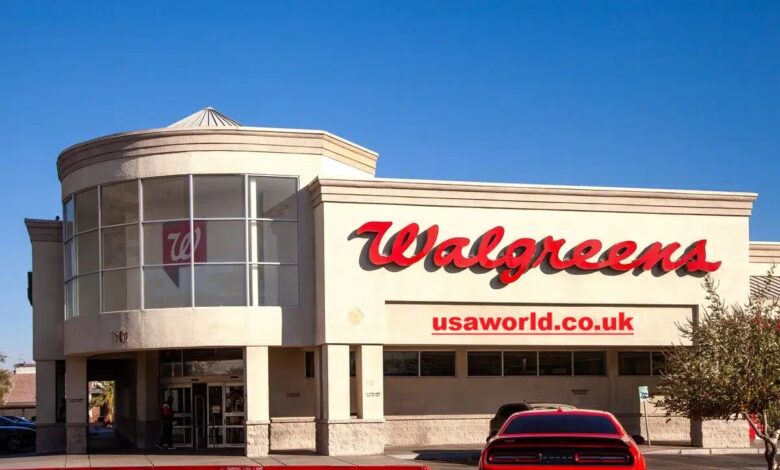Walgreens Class Action Lawsuit: A Deep Dive into the Case and Its Wider Impact

Introduction: Why the Walgreens Class Action Lawsuit Matters
Walgreens class action lawsuit when large corporations like Walgreens face class action lawsuits, it’s not just about one dispute between a company and its customers. Instead, it’s a story that resonates with millions of people, from the employees stocking shelves to the customers filling prescriptions. A class action lawsuit, at its core, allows a group of individuals to band together and bring forward their claims against a powerful organization. This legal structure makes the “little voices” stronger, enabling accountability on a scale that single cases could never achieve.
The recent and ongoing class action lawsuits against Walgreens are gaining attention because they shed light on issues surrounding corporate responsibility, transparency, and consumer trust. Whether the allegations are about prescription pricing, deceptive marketing practices, or employee treatment, the very fact that Walgreens—the second-largest pharmacy chain in the United States—is in legal hot water raises eyebrows.
What’s most intriguing about this case is how it intertwines business, law, and everyday life. Walgreens isn’t just a brand; for millions, it’s the place where they grab their medicines, buy health products, and sometimes even get flu shots. When allegations surface against such a household name, the conversation immediately expands beyond the courtroom to the dinner table.
This article aims to unpack the Walgreens class action lawsuit in a way that’s both formal and conversational. We’ll explore the history of the allegations, the broader implications, and what it could mean for the future of retail pharmacy giants. Let’s dive in.
Understanding Class Action Lawsuits: Power in Numbers

Before analyzing walgreens class action lawsuit, it’s important to understand the mechanism of a class action lawsuit. Unlike an individual lawsuit, where a single plaintiff sues a company, a class action involves a group of people with similar grievances combining their voices. This collective approach not only saves time and resources but also ensures that large corporations can’t brush off widespread harm with minimal consequences.
Imagine a company overcharging millions of customers by just a dollar each. On an individual level, it may not seem worth the hassle to take legal action for such a small amount. But when those customers come together in a class action, suddenly the company faces accountability for millions of dollars. That’s why class actions are powerful—they hold corporations to standards they might otherwise slip through.
walgreens class action lawsuit, as one of the biggest names in the pharmacy industry, is no stranger to lawsuits. Over the years, the company has faced legal challenges ranging from opioid distribution to employment practices. Each case highlights a different aspect of how large corporations navigate profit motives, regulatory compliance, and consumer rights.
In the current class action lawsuit, the central theme is trust—something every pharmacy chain depends on. Customers must trust that the prices are fair, the medications are safe, and the policies are transparent. When those expectations appear violated, lawsuits naturally follow.
The Allegations Against Walgreens: What Sparked the Lawsuit?
At the heart of the Walgreens class action lawsuit are allegations that strike at the core of consumer confidence. While the exact claims vary depending on which case you examine ,walgreens class action lawsuit they often revolve around pricing practices, insurance reimbursements, or misleading representations of costs.
For example, some lawsuits have alleged that Walgreens engaged in deceptive pricing by charging insured customers more than they would have paid without insurance. This practice, sometimes referred to as “clawbacks” or “spread pricing,” leaves patients confused and frustrated. Imagine standing at the pharmacy counter, believing your insurance card will save you money, only to find out later that paying in cash might have been cheaper. That sense of betrayal is what fuels consumer anger.
In addition to pricing concerns, Walgreens has also faced lawsuits tied to the opioid epidemic. Various states and municipalities have claimed that Walgreens, along with other major pharmacies, failed to adequately monitor and report suspicious prescriptions. The ripple effects of the opioid crisis are devastating, and when companies are seen as contributors, public backlash is inevitable.
Walgreens class action lawsuit beyond the headlines, there are also employment-related lawsuits. Former employees have brought class actions over wage disputes, scheduling practices, and unpaid overtime. These lawsuits don’t always get as much media coverage, but they speak volumes about how corporate policies impact the lives of thousands of workers behind the counters.
Ultimately, the Walgreens class action lawsuits represent a convergence of issues—consumers feeling shortchanged, employees seeking fairness, and regulators demanding accountability. Each lawsuit chips away at the glossy exterior of a trusted brand, forcing people to question how much they really know about the businesses they depend on.
The Broader Implications: Corporate Accountability in the Pharmacy Industry
What makes the Walgreens class action lawsuit especially significant is that it’s not happening in isolation. The pharmacy industry has been under intense scrutiny in recent years. CVS, Rite Aid, and other major chains have also faced lawsuits over similar issues, from pricing transparency to their roles in the opioid epidemic.
This raises bigger questions: Are these isolated missteps by individual corporations, or do they point to systemic issues in how pharmacies operate in America? For many critics, the answer leans toward the latter. When multiple companies face similar lawsuits, it suggests that the problem may not be limited to one bad apple but rather woven into the structure of the industry itself.
The implications go beyond legal fees and settlements. These lawsuits influence public trust, which is crucial in healthcare. If consumers begin doubting the fairness of pharmacy pricing or the integrity of their practices, the entire system risks losing credibility. That’s a dangerous position, considering pharmacies are often the most accessible point of contact for healthcare in the United States.
Furthermore, Walgreens class action lawsuit highlight the growing demand for corporate accountability. Gone are the days when large corporations could sweep issues under the rug with minimal public awareness. In the age of social media and instant information, lawsuits quickly become public debates, shaping consumer perceptions and even stock market performance.
Walgreens, therefore, isn’t just fighting legal battles; it’s fighting to preserve its reputation in a highly competitive and increasingly skeptical marketplace.
How Consumers and Employees Are Affected
For the everyday customer, lawsuits like this may feel distant at first. After all, most people just want their prescriptions filled on time and at a reasonable price. But dig a little deeper, and the direct impact becomes clearer. If allegations of deceptive pricing are true, that means countless customers may have paid more than they should have—money that directly came out of their pockets.
Walgreens class action lawsuit the consequences extend to insurance dynamics as well. When pharmacies engage in practices that inflate costs, those costs eventually trickle down into higher insurance premiums, co-pays, or out-of-pocket expenses. In other words, the financial strain doesn’t stop at the counter; it spreads throughout the healthcare system.
Employees, too, are affected in profound ways. Wage disputes and overtime issues highlight the tension between corporate efficiency and fair labor practices. Pharmacy technicians, cashiers, and pharmacists form the backbone of Walgreens’ operations, and when they feel undervalued or overworked, the quality of service inevitably suffers. Walgreens class action lawsuit from employees are not just about money—they’re about dignity, recognition, and respect in the workplace.
For both consumers and employees, the Walgreens class action lawsuit represents more than legal wrangling. It’s a mirror reflecting the daily realities of people whose trust, money, and labor fuel the company’s growth.
The Future of Walgreens and the Lessons to Be Learned
As the lawsuits progress, the future of Walgreens hangs in the balance—not in the sense that the company will vanish overnight, but in how its reputation and operations will evolve. Large corporations are resilient; they can weather financial hits and even regulatory fines. What’s harder to repair is the erosion of public trust.
Walgreens class action lawsuit has an opportunity to turn this moment into a lesson. Transparency in pricing, stronger employee protections, and more responsible oversight of prescriptions are steps that could not only resolve legal issues but also rebuild consumer confidence. If Walgreens takes proactive measures, it could transform a crisis into an opportunity for renewal.
The pharmacy industry at large can also learn from these lawsuits. Clear communication with customers, ethical pricing models, and robust compliance systems are no longer optional—they are essential. As healthcare costs continue to rise, consumers are paying closer attention than ever to where their money goes, and companies that fail to adapt risk being left behind.
In a sense, the Walgreens class action lawsuit is bigger than Walgreens. It’s a cautionary tale for any corporation that wields immense influence over people’s health and wallets. Accountability, once seen as a burden, is now the foundation of long-term success.
Conclusion: Beyond the Headlines
The Walgreens class action lawsuit is more than a courtroom drama—it’s a reflection of the evolving relationship between corporations and the public. It speaks to the power of collective action, the importance of trust in healthcare, and the demand for fairness in both consumer and employee relations.
While the specifics of the case will unfold in legal documents and settlements, the broader message is already clear: corporations cannot afford to cut corners when people’s health, money, and livelihoods are at stake. For Walgreens, the road ahead will require not just legal defense but also a commitment to regaining the faith of its customers and employees.
Ultimately, the lawsuit is a reminder that accountability is not a punishment—it’s a pathway to better business practices and stronger community relationships. And for everyday people, it reinforces the idea that even against giants, their voices matter when they come together.
Further insights and Gain more perspective from…
Augusta Precious Metals Lawsuit



